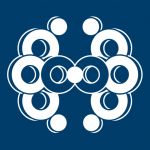
The Mental Toughness concept has emerged as one of the most important advances in individual and organisational development. Long known to be valuable – Plato identifies it as one of the 4 virtues 2500 years ago – it has only in recent times been understood in a way that the concept can be applied.
Mental Toughness is a personality trait that describes how we respond mentally when confronted by events. It describes “how we think” when things happen to us or around us. This has a significant impact on how we act when things happen.
Research in the 1990s, initiated by Professor Peter Clough, led to an understanding that the concept consisted of 4 constructs. We now understand that these are underpinned by 8 independent factors which allow us to understand our mental response to a fine degree.
Together with the development of the psychometric measure, the MTQPlus, there is now the capability to assess this in people and in groups; to identify where development activity can be useful, and to measure and evaluate change reacting this to changes in important outcomes such as wellbeing, performance, and aspirations. Perhaps crucially it enables self-awareness about how one approaches events mentally – which is an activity at the heart of coaching and mentoring.
Speakers: Doug Strycharczyk, CEO – AQR International and Professor Peter Clough. Hosted by the Coaching Lab Team at Heriot-Watt University’s Psychology Department.
To book a space visit eventbrite.

